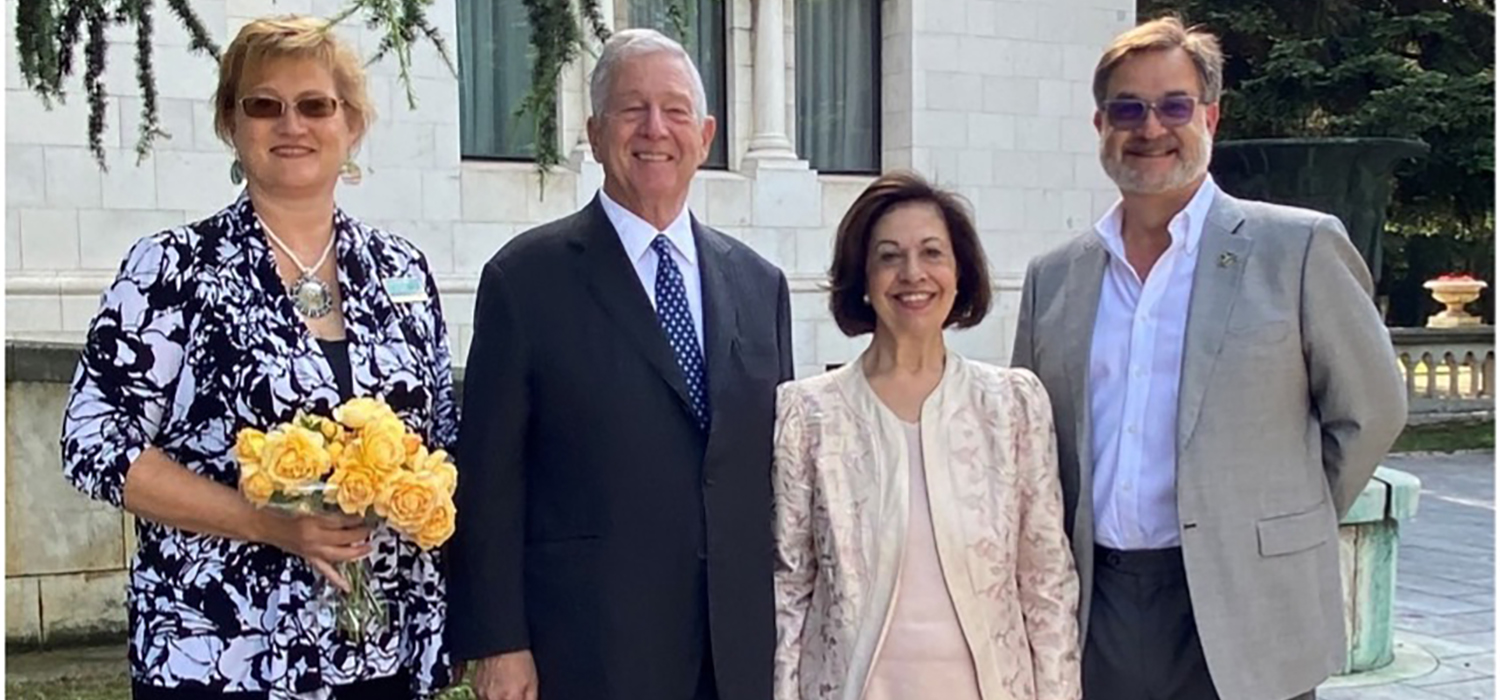A group of faculty and students from the University of South Florida’s School of Hospitality and Tourism Management will travel to Serbia this fall as part of a U.S. Embassy University Partnership grant. The $98,000 grant was awarded to Brooke Hansen, director of sustainable tourism in the Patel College of Global Sustainability; Cihan Cobanoglu, dean of the School of Hospitality and Tourism Management and director for the M3 Center for Hospitality Technology & Innovation; Adam Carmer, director of the Sensory Innovation Lab and assistant professor in the School of Hospitality and Tourism Management; Faizan Ali, associate professor in the School of Hospitality and Tourism Management; and Laura Harrison, director of USF’s Access 3D Lab.
The grant, titled “Immersive Technologies for Cross-Cultural Tourism Development: U.S. and Serbia on a Pathway to Digital Transformation,” will foster an informative and cultural exchange between faculty and students at USF and Serbia’s University of Novi Sad (UNS).
“We’re creating this bond across the ocean and across countries to strengthen ties, share information and support one other,” Hansen said. “There’s a lot we can learn from each other when it comes to digital technologies in tourism and hospitality.”
“The fact that Novi Sad is this year's European Capital of Culture provides a unique opportunity for us to present Serbian cultural heritage to our American colleagues,” said Ugljesa Stankov, a professor in the department of geography, tourism and hotel management at UNS. “Our goal is to collaborate on the development of a digital transformation process, to learn from one another and to contribute to the strengthening of ties between students, professors and our countries.”
The exchange begins this October in Serbia, where the UNS faculty will host workshops on sustainable tourism development and national heritage at Prince Alexander’s Royal Palace, the national museum of Serbia and at tourism sites including Lepenski Vir and Golubac Fortress.
“Serbia is home to amazing cultural heritage and food and beverage tourism assets,” said Hansen, who sees their first stop – the royal compound – as a microcosm of Serbia’s deep cultural heritage. “I really want people to understand what the royal compound means to the Serbian people.”
On a previous visit, Hansen used her 3D scanner to create a virtual model of the White Palace in an effort to enhance existing tours at the royal compound.
“It was during Dr. Hansen’s initial trip that we saw a lot of opportunities for collaboration, not only in an academic setting, but also in the development of new programs with a broader social and economic impact,” said Miroslav Vujicic, a professor in the department of geography, tourism and hotel management at UNS.
A new project, led by USF alum Marko Bajic, sustainability manager for the royal compound, will involve USF in sustainable tour development initiative.
“Prince Alexander is passionate about sustainability,” said Hansen. “He wants to turn the compound into a sustainability showcase featuring composting, solar panels and circular economy demonstrations.”
In November, USF will welcome faculty and students from UNS to Florida and invite them on a tour of USF's Access 3D Lab, the Sensory Innovation Lab, Egmont Key, Busch Gardens and Tampa’s Riverwalk. The visit will showcase the latest virtualization and 3D modeling technologies, the augmented reality development in hospitality and tourism and the immersive sensory pedagogies used in food and beverage tourism.
“Egmont Key is where I do a lot of my virtualization technologies and tourism work,” said Hansen. “We use terrestrial laser scanners and other equipment to monitor the effects of climate change at Egmont Key and to help protect heritage at risk.”
In addition to being a Florida State Park and housing the historic military complex Fort Dade, Egmont Key is a national wildlife refuge, where a variety of birds and turtles build their nests. It is also the site where Seminole people were incarcerated in the 1850s.
“One of the stories we’re trying to tell through our engaging virtualization technologies like VR goggles and touch screens is the story of marginalized peoples and histories erased,” said Hansen.
In partnership with the Egmont Key Alliance and USF’s Access 3D Lab, Hansen has created virtual tours of Egmont Key and worked with local marine operators to incorporate conservation education.
“We want to show our Serbian guests how we’re incorporating digital technologies into tourism storytelling, monitoring for climate change effects, bringing invisible histories out.”
Following the exchange, USF and UNS will host two virtual workshops during which students from both universities will be invited to participate in a live “cluster learning initiative” that unites multiple classes under one theme. As many as 400 students are expected to participate.
“This is really an unbelievable opportunity for us to engage on a deeper level,” said Cobanoglu, who plans to recruit Serbian students to USF. “We are thankful to the U.S. Embassy in Serbia for this wonderful grant. We will see the impact for years to come.”
